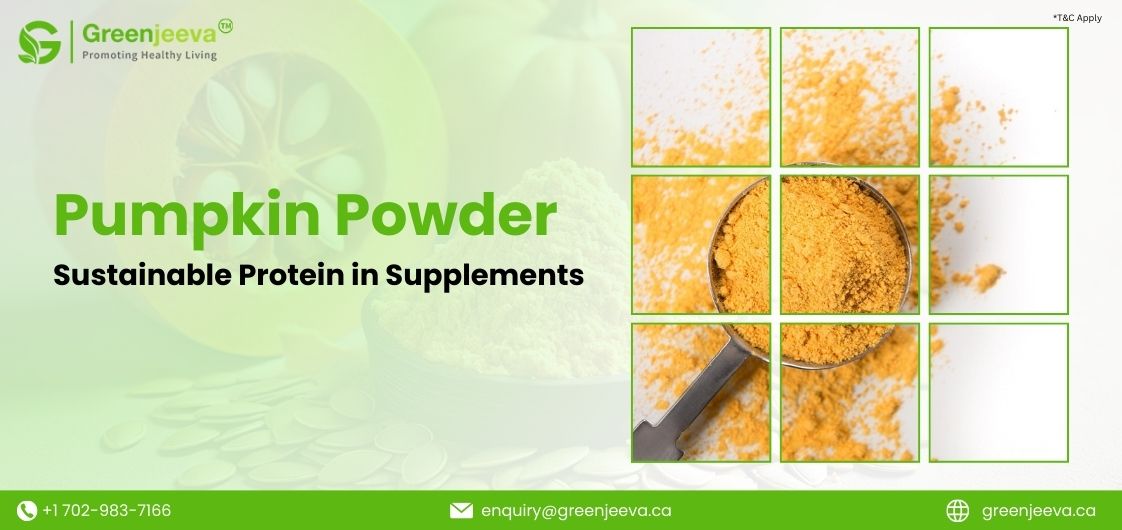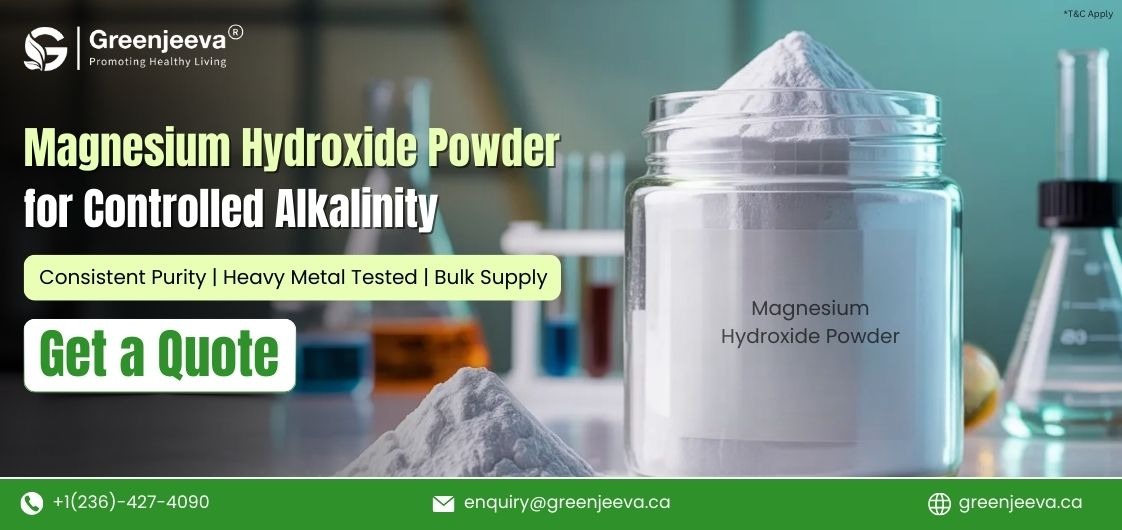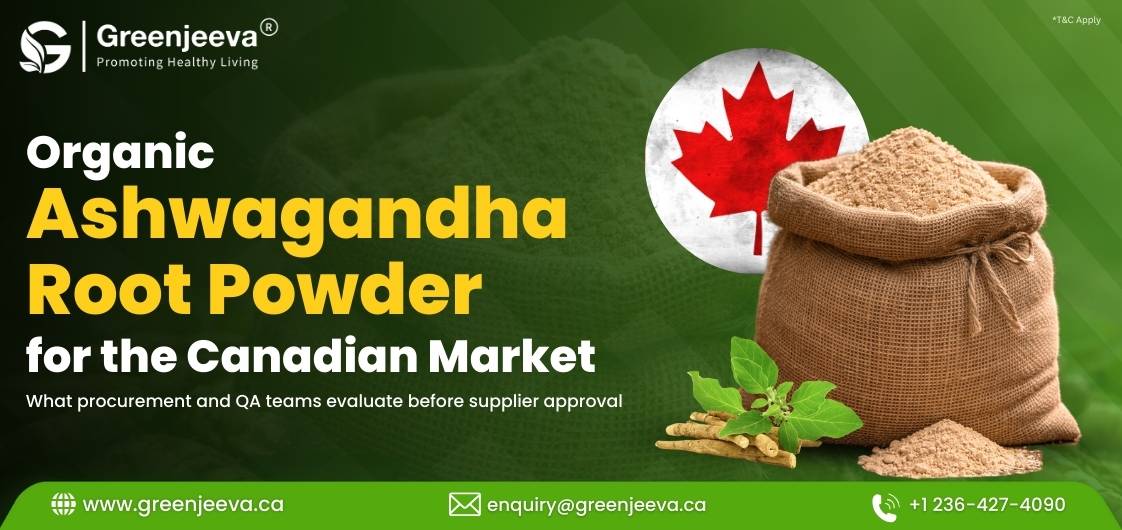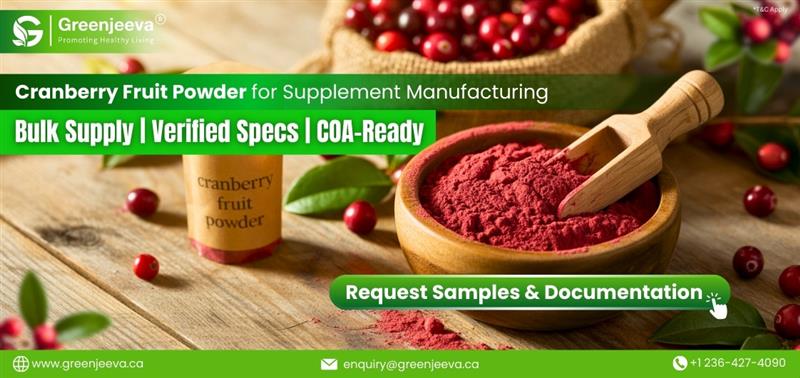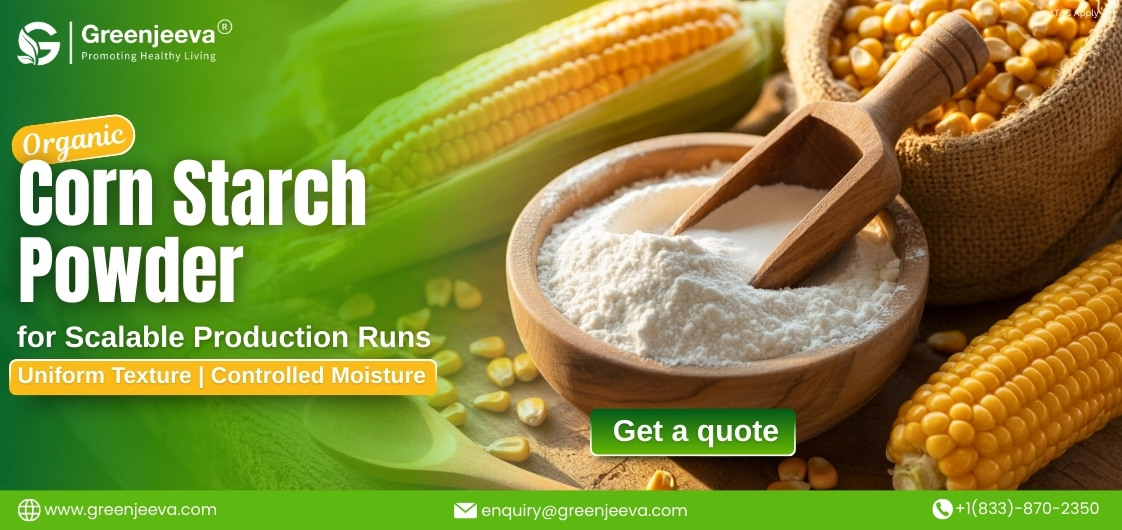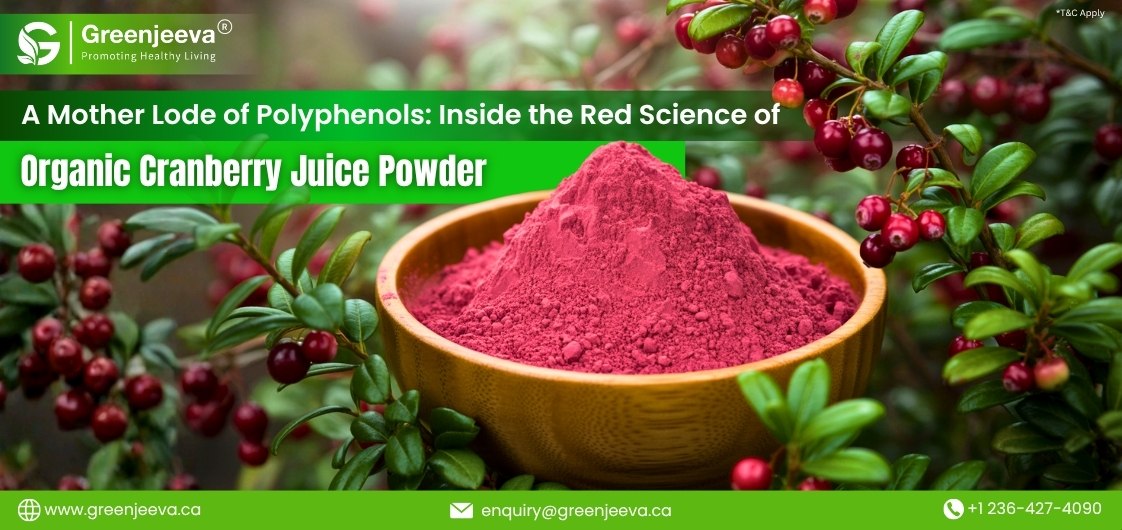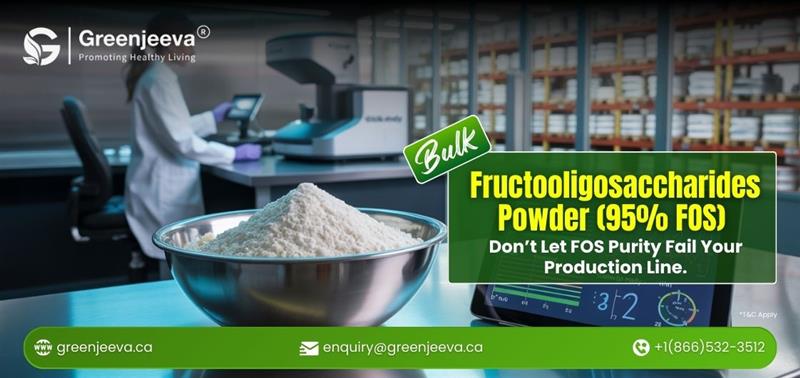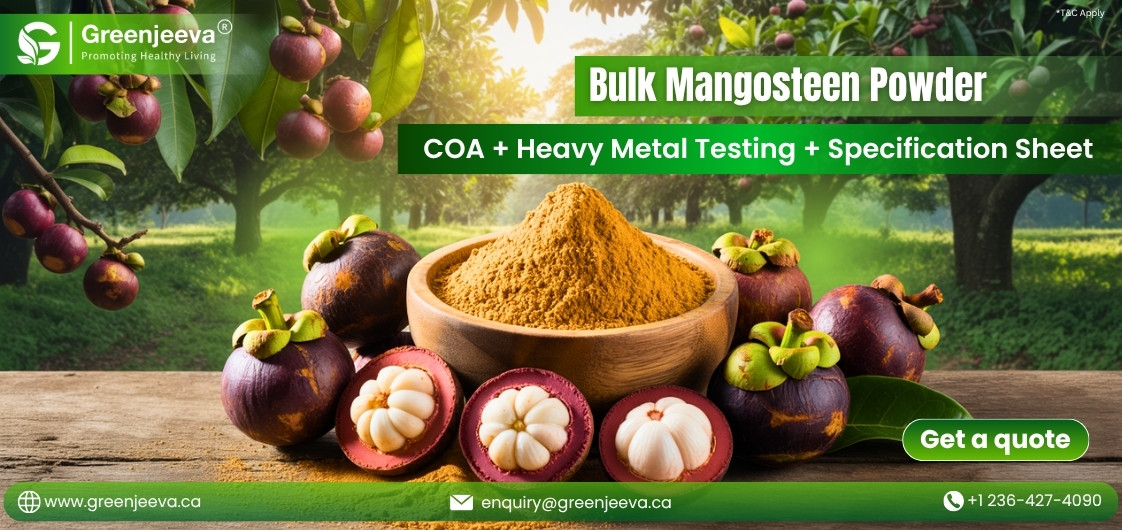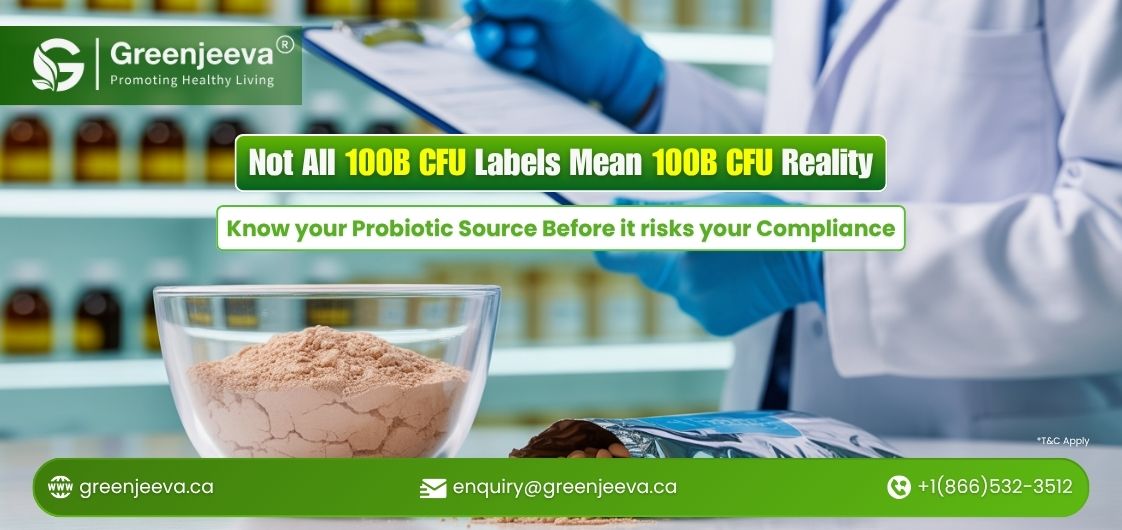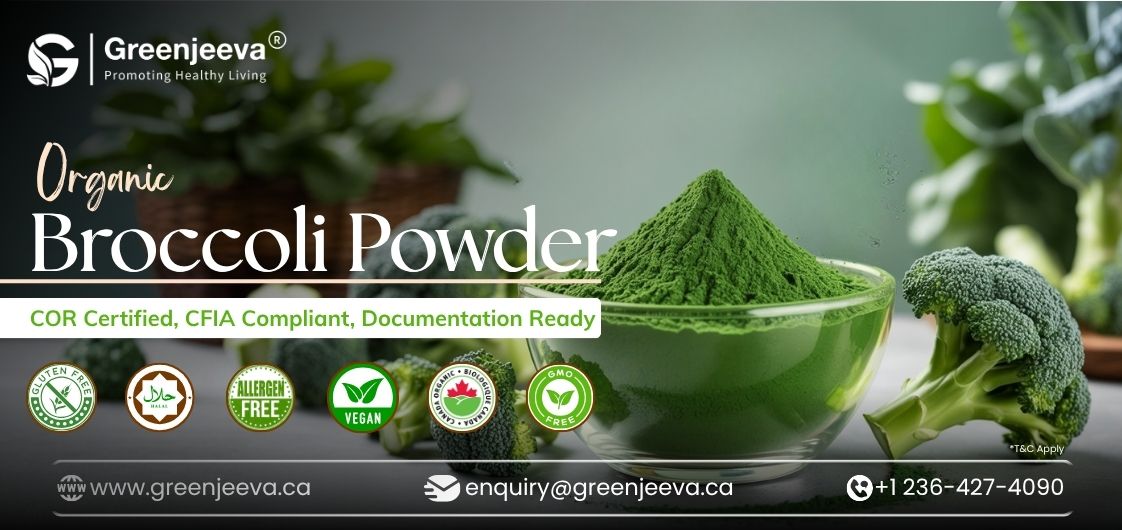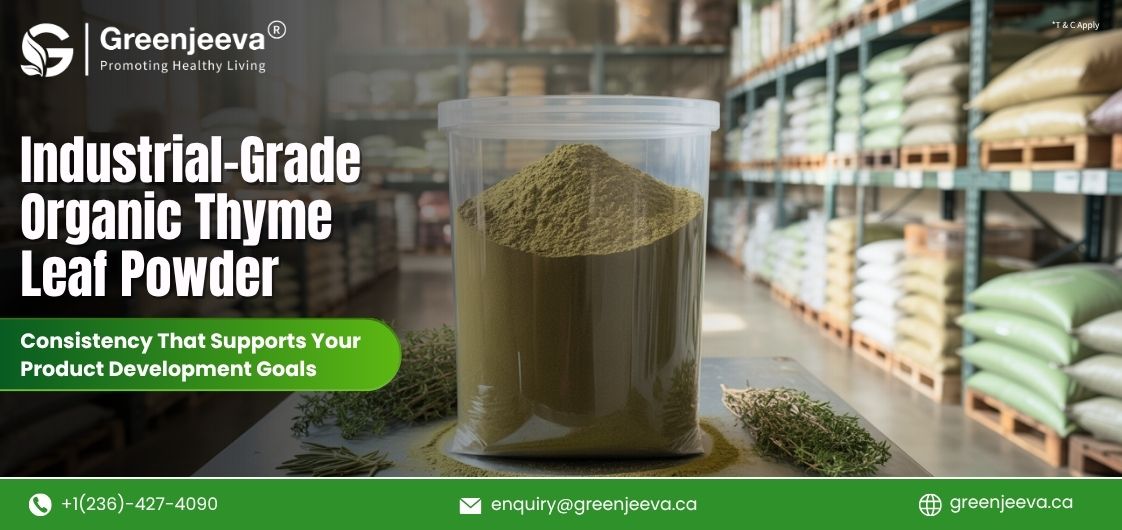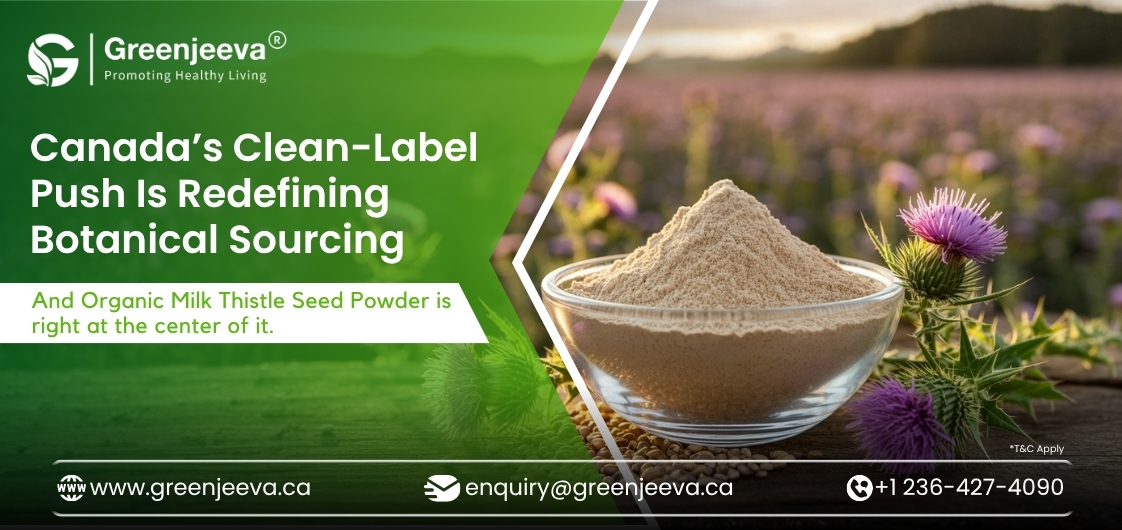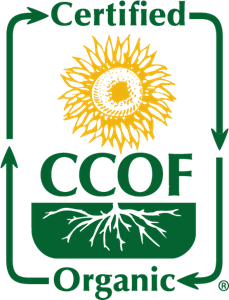With the growing demand for plant-based protein alternatives in the supplement industry, pumpkin powder has emerged as a sustainable and nutrient-rich ingredient. As consumers increasingly seek protein sources that align with environmental values and dietary preferences, supplement brands are turning to pumpkin powder protein for its versatility and market appeal. This blog will explore the production, benefits, and market advantages of pumpkin powder for supplement manufacturers and plant-based product developers.
The Rise of Pumpkin Powder in Protein Supplements
With the rise of plant-based diets, the market for plant-based protein supplements has expanded rapidly. It is emerging as a strong alternative to traditional protein sources like whey and soy. Packed with essential amino acids, pumpkin powder is produced sustainably. Made from ground pumpkin seeds, organic pumpkin powder retains its nutrient profile and offers a clean, allergen-free protein option.
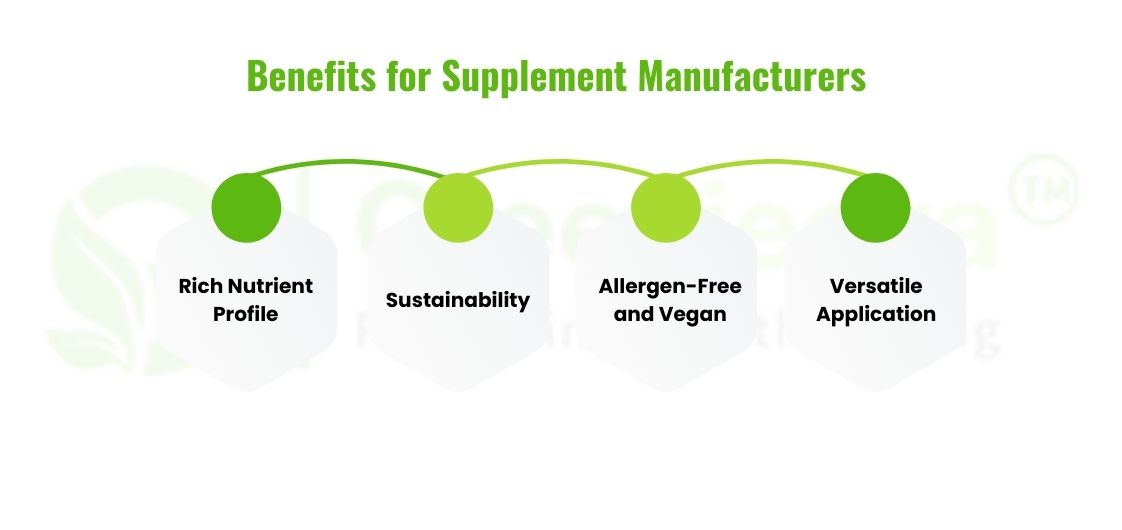
Production of Pumpkin Powder
Producers typically derive pumpkin protein powder from de-oiled pumpkin seeds, which they process into a fine, protein-rich powder. They cold-press the seeds to preserve their nutritional value, ensuring that key elements like fiber, vitamins, and minerals stay intact. Manufacturers produce organic pumpkin powder without artificial additives, offering a clean-label ingredient that aligns with growing consumer demands for transparency.
Benefits for Supplement Manufacturers
1. Rich Nutrient Profile: It is rich in protein, fiber, and essential fatty acids. It contains key vitamins like Vitamin A, C, and E, along with magnesium, zinc, and potassium, making it ideal for sports nutrition and wellness supplements.
2. Sustainability: It is a sustainable protein source. As the byproduct of pumpkin seed oil extraction, it minimizes waste, aligns with eco-conscious manufacturing practices, and appeals to environmentally aware consumers.
3. Allergen-Free and Vegan: Unlike common protein sources like soy, dairy, or whey, organic pumpkin powder is hypoallergenic and suitable for vegan and gluten-free diets, making it a valuable addition to plant-based product lines.
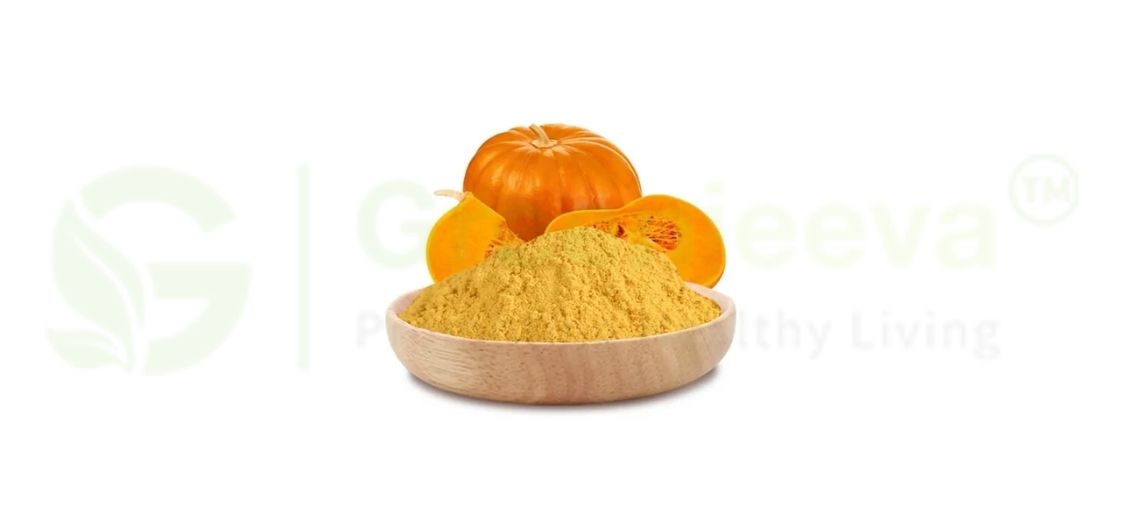
4. Versatile Application: It easily integrates into various product formulations, including protein shakes, bars, and powders. This adaptability allows manufacturers to target multiple market segments, from vegan sports nutrition to everyday meal supplements.
Competitive Advantage in the Market
Pumpkin powder protein offers unique advantages over other plant-based protein sources. Its high digestibility and neutral taste make it an appealing option for consumers seeking a protein supplement that is easy on the stomach and versatile in flavor. Moreover, organic pumpkin powder is appealing due to the clean-label trend, providing an alternative to products with artificial ingredients.
In comparison to pea or soy protein, pumpkin powder stands out for its impressive sustainability credentials and ability to meet diverse consumer needs without common allergens. This gives supplement brands a competitive edge in a crowded plant-based protein market.
Conclusion
For supplement manufacturers looking to expand their product offerings, pumpkin extract presents a compelling opportunity. It delivers on multiple fronts—nutritionally dense, sustainable, allergen-free, and adaptable for various product formats. As demand for plant-based proteins continues to rise, organic pumpkin powder can provide a competitive advantage for brands ready to meet the evolving needs of health-conscious consumers.
**The Food and Drug Administration has not evaluated these statements. This product is not intended to diagnose, treat, cure, or prevent any disease.**


